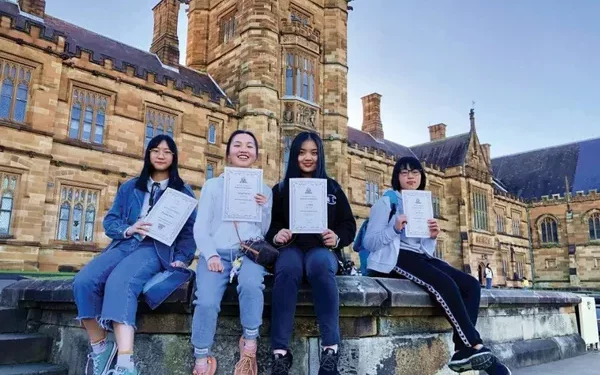Australia has become a popular destination for international students seeking quality education. The country has world-renowned universities that offer a wide range of courses, making it an attractive choice for students from all over the world. However, one question on many prospective students’ minds is whether studying in Australia is expensive. In this article, we will explore the cost of studying in Australia for international students, the various expenses involved, and tips on how to manage your finances while studying in Australia.
Tuition Fees
One of the most significant expenses for international students studying in Australia is tuition fees. The cost of tuition varies depending on the institution and the course you are enrolled in. According to the Department of Education, the average annual tuition fee for international students in Australia was AUD 32,596 in 2020. This figure is significantly higher than the average tuition fees for domestic students, which were AUD 6,887.
It’s worth noting that some courses, such as Medicine, Law, and Dentistry, can have much higher tuition fees compared to other courses. For instance, the average annual tuition fee for a medical degree in Australia ranges from AUD 60,000 to AUD 80,000 per year.
Living Expenses
Apart from tuition fees, international students also need to factor in living expenses when budgeting for their studies in Australia. These expenses include accommodation, food, transportation, entertainment, and other miscellaneous costs.
Accommodation is often the most significant expense for international students. On-campus accommodation can cost anywhere between AUD 250 to AUD 400 per week, while off-campus accommodation can range from AUD 150 to AUD 350 per week, depending on the location and type of accommodation.
Food expenses can also add up quickly, especially if you eat out often. On average, a meal at a restaurant can cost around AUD 20 to AUD 30, while a meal at a fast-food chain can cost around AUD 10 to AUD 15.
Transportation expenses vary depending on the location of your institution and where you live. For example, if you live on campus, you may not need to spend much on transportation. However, if you live off-campus, you may need to factor in the cost of public transport or car expenses.
Entertainment and other miscellaneous expenses will depend on your personal preferences and lifestyle. These expenses can include things like gym memberships, phone bills, and leisure activities.
Scholarships and Financial Assistance
Fortunately, there are several options available to international students who need financial assistance to study in Australia. Scholarships are one such option. Many Australian universities offer scholarships to international students based on academic merit, financial need, or other criteria.
Some scholarships cover tuition fees, while others provide a stipend for living expenses. It’s important to note that competition for scholarships is fierce, and it’s essential to apply early and meet all the eligibility requirements.
Another option for financial assistance is student loans. International students can apply for student loans from Australian banks, but they usually require a guarantor who is an Australian citizen or permanent resident. Additionally, interest rates on these loans can be high, so it’s essential to consider your financial situation carefully before taking out a loan.
Working Part-Time
International students in Australia are allowed to work part-time while studying. This can be a great way to earn some extra money to cover living expenses. However, students should keep in mind that the number of hours they are allowed to work per week is limited to 20 hours when classes are in session. During holidays, students can work full-time.
The minimum wage in Australia is AUD 19.84 per hour, which means that students can earn approximately AUD 396.80 per week if they work the maximum allowable hours during term time. However, it’s important to note that working while studying can impact your academic performance, and students should not rely solely on part-time work to cover their living expenses.
Tips for Managing Finances While Studying in Australia
Managing finances can be challenging for international students studying in Australia. Here are some tips to help you manage your finances effectively:
Create a Budget:
Creating a budget is essential to managing your finances effectively. It will help you track your income and expenses and ensure that you don’t overspend.
Find Affordable Accommodation:
As mentioned earlier, accommodation is often the most significant expense for international students. Look for affordable options such as shared apartments or homestays.
Cook at Home:
Eating out can be expensive in Australia. Cooking at home can help you save money on food expenses.
Use Public Transport:
Public transport is usually cheaper than owning a car or using taxis. Consider using public transport to save money on transportation expenses.
Apply for Scholarships:
Apply for scholarships early and meet all the eligibility requirements to increase your chances of receiving financial assistance.
Recommended Reading:



















